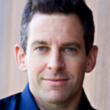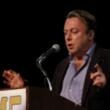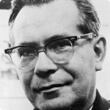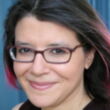The age of American unreason
Description
More Details
9781400127320
Also in this Series
Published Reviews
Choice Review
In this flip side to her book, grounded in the Enlightenment tradition, on the history of US secularism and rationalism (Freethinkers, 2004), independent scholar Jacoby finds contemporary US culture awash in an unprecedented wave of anti-intellectual irrationalism. Combining contemporary cultural criticism with historical analysis, Jacoby is an equal opportunity critic. If the anti-evolution fervor of religious fundamentalism is the US's most glaring example of irrationalism, the real culprits are an "infotainment"-obsessed, video-based, mass media-driven popular culture that has largely displaced a culture of print, reading, and conversation; an ineffectual educational system that has acquiesced in a disastrous "dumbing down" of US culture; and a political culture on both the Left and Right that exacerbates the decline of rational, intelligent thought and discussion. None of this is especially novel, and this book is a sprawling, loosely organized study. But it is also unusually well written and engaging, and offers a sharply argued defense of reason, logic, science, and rigorous education. If Jacoby persuades even a few Americans to opt out of even a small part of their ubiquitously mindless popular culture and to begin once again reading, thinking, and talking intelligently, she will have accomplished something uncommonly valuable. Summing Up: Highly recommended. All levels/libraries. K. Blaser Wayne State College
Booklist Review
*Starred Review* Many writers have parsed the dumbing down of American culture, but none bring quite the deep historical perspective, razor-sharp analysis, well-calibrated moral compass, and stinging wit to the subject that Jacoby does. Building on her last book, Freethinkers: A History of American Secularism (2004), Jacoby presents a take-no-prisoners inquiry into the history and consequences of American anti-intellectualism. Alarmed by the decline in reading (a practice indispensable to intellectual life ), the debasement of the nation's speech, and the education system's failure to teach essential facts and critical thinking, Jacoby looks back to the postwar middlebrow culture of aspiration and redraws the map of the epoch-launching 1960s: while the counterculture attracted the limelight, religious fundamentalists constructed the foundation for today's Christian Right, television began to spread its gospel of passivity and consumerism, and the commodification of youth culture was launched. Jacoby is at once reasoned and scathing in her assessment of the damage done by the fundamentalist war against evolution, her protest against the malignant fog of infotainment, and her condemnation of the plague of ignorance. Electric with fearless interpretation and fueled by passionate concern, Jacoby's goading portrait of a society squandering its powers is brilliant, incendiary, and, one hopes, corrective.--Seaman, Donna Copyright 2008 Booklist
Publisher's Weekly Review
Inspired by Richard Hofstadter's trenchant 1963 cultural analysis Anti-Intellectualism in American Life, Jacoby (Freethinkers: A History of American Secularism) has produced an engaging, updated and meticulously thought-out continuation of her academic idol's research. Dismayed by the average U.S. citizen's political and social apathy and the overall "crisis of memory and knowledge involving everything about the way we learn and think," Jacoby passionately argues that the nation's current cult of unreason has deadly and destructive consequences (the war in Iraq, for one) and traces the seeds of current anti-intellectualism (and its partner in crime, antirationalism) back to post-WWII society. Unafraid of pointing fingers, she singles out mass media and the resurgence of fundamentalist religion as the primary "vectors" of anti-intellectualism, while also having harsh words for pseudoscientists. Through historical research, Jacoby breaks down popular beliefs that the 1950s were a cultural wasteland and the 1960s were solely a breeding ground for liberals. Though sometimes partial to inflated prose ("America's endemic anti-intellectual tendencies have been grievously exacerbated by a new species of semiconscious anti-rationalism"), Jacoby has assembled an erudite mix of personal anecdotes, cultural history and social commentary to decry America's retreat into "junk thought." (Feb. 12) (c) Copyright PWxyz, LLC. All rights reserved
Library Journal Review
Infotainment. Religious fundamentalism. Lousy public schools. That's just some of the evidence social critic -Jacoby dredges up in this analysis of America's widening anti-intellectual streak. With a five-city tour. (c) Copyright 2010. Library Journals LLC, a wholly owned subsidiary of Media Source, Inc. No redistribution permitted.
Kirkus Book Review
Anti-intellectualism is as American as--well, as anti-intellectualism, an ironic tradition that, writes Jacoby (Freethinkers: A History of American Secularism, 2004, etc.), allows the president to declare himself pro-education while admitting to not reading newspapers. Of course, the author adds, Bush said that "he rarely read newspapers because that would expose him to 'opinions,' " opinions presumably meaning anything with which he did not agree. Yet Bush's just-plain-folks appeals worked, at least for a while; even Hillary Clinton calls people folks, which, grumbles Jacoby, sounds forced and inauthentic, just like the rest of politics. Americans, it seems, prefer their presidents on the autodidactic side, and not too smart. Even if Bill Clinton was a Rhodes scholar, Teddy Roosevelt a historian and Woodrow Wilson a college president, the model is always of Lincoln, even if he in turn lamented "his lack of systematic formal schooling [which is] left out of the self-congratulatory story of American self-education." Contrary to this strain, notes the author, is the middlebrow contribution to the culture, which thrived on self-education and manifested itself in such organs as the Book-of-the-Month Club, all "within the broader context of mass marketing." Even the middlebrows are largely absent these days, Jacoby laments, as are the opportunities she once had as a magazine writer to turn out long think pieces for women's magazines that now specialize in short features about how to please your man. Jacoby twits the academic enemies of intelligence--professors who write endless tomes on Bob Dylan's poetry and chair programs in "fat studies"--while zapping the usual suspects, such as television and video games, as assassins of the mind and spirit. The argument is a little scattershot and occasionally self-serving, as social criticism tends to be, but Jacoby makes a good case for having a president who reads and a culture that provides material worth reading. Copyright ©Kirkus Reviews, used with permission.
Booklist Reviews
*Starred Review* Many writers have parsed the dumbing down of American culture, but none bring quite the deep historical perspective, razor-sharp analysis, well-calibrated moral compass, and stinging wit to the subject that Jacoby does. Building on her last book, Freethinkers: A History of American Secularism (2004), Jacoby presents a take-no-prisoners inquiry into the history and consequences of American anti-intellectualism. Alarmed by the decline in reading (a practice "indispensable to intellectual life"), the "debasement of the nation's speech," and the education system's failure to teach essential facts and critical thinking, Jacoby looks back to the postwar middlebrow "culture of aspiration" and redraws the map of the epoch-launching 1960s: while the counterculture attracted the limelight, religious fundamentalists constructed the foundation for today's Christian Right, television began to spread its gospel of passivity and consumerism, and the commodification of youth culture was launched. Jacoby is at once reasoned and scathing in her assessment of the damage done by the fundamentalist war against evolution, her protest against the malignant fog of infotainment, and her condemnation of the plague of ignorance. Electric with fearless interpretation and fueled by passionate concern, Jacoby's goading portrait of a society squandering its powers is brilliant, incendiary, and, one hopes, corrective. Copyright 2008 Booklist Reviews.
Library Journal Reviews
Infotainment. Religious fundamentalism. Lousy public schools. That's just some of the evidence social critic -Jacoby dredges up in this analysis of America's widening anti-intellectual streak. With a five-city tour. Copyright 2007 Reed Business Information.
Publishers Weekly Reviews
Inspired by Richard Hofstadter's trenchant 1963 cultural analysis Anti-Intellectualism in American Life , Jacoby (Freethinkers: A History of American Secularism ) has produced an engaging, updated and meticulously thought-out continuation of her academic idol's research. Dismayed by the average U.S. citizen's political and social apathy and the overall "crisis of memory and knowledge involving everything about the way we learn and think," Jacoby passionately argues that the nation's current cult of unreason has deadly and destructive consequences (the war in Iraq, for one) and traces the seeds of current anti-intellectualism (and its partner in crime, antirationalism) back to post-WWII society. Unafraid of pointing fingers, she singles out mass media and the resurgence of fundamentalist religion as the primary "vectors" of anti-intellectualism, while also having harsh words for pseudoscientists. Through historical research, Jacoby breaks down popular beliefs that the 1950s were a cultural wasteland and the 1960s were solely a breeding ground for liberals. Though sometimes partial to inflated prose ("America's endemic anti-intellectual tendencies have been grievously exacerbated by a new species of semiconscious anti-rationalism"), Jacoby has assembled an erudite mix of personal anecdotes, cultural history and social commentary to decry America's retreat into "junk thought." (Feb. 12)
[Page 47]. Copyright 2007 Reed Business Information.































